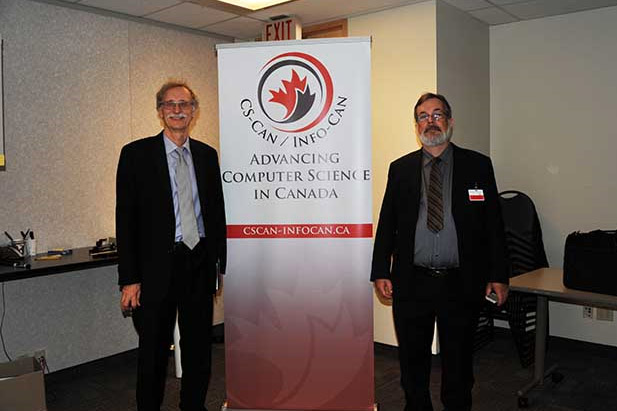Computer science and related technologies key to Canadian economic growth
Faculty of Science professor Mark Green helping lead new approach on promoting innovation
October 3, 2016

The Information Technology Association of Canada (ITAC) says the number of unfilled jobs in the information and communications technology (ICT) sector will grow to 106,000 in 2016. The implications for Canada are substantial.
Throughout a career spanning more than 30 years, University of Ontario Institute of Technology (UOIT) computer science researcher Mark Green, PhD, has seen it all when it comes to rapid changes in technology.
“So much has happened, so much has changed, and so much continues to change,” says Dr. Green, Professor and Associate Dean, Faculty of Science. “But one thing remains clear from an economic standpoint: Canada must continue to grow and nurture the required computer science talent pool in the country, from elementary school through to university. Our future growth and position in the global economy depends on it.”
That’s why Dr. Green and academic colleagues across Canada have created a new national coalition to promote excellence in computer science research and higher education.
On September 22, Computer Science Canada/Information Canada (CS-CAN/INFO-CAN) logged on to the national scene with a formal launch at Ottawa’s Rideau Club. The organization will work with the Natural Sciences and Engineering Research Council of Canada (NSERC) and ITAC to create computer science partnerships between academia, government and the private sector.
“There is a lot of work ahead if we want to keep driving innovation in Canada,” says Dr. Green, Founding President, CS-CAN/INFO-CAN. “An important component of this is experiential learning through co-op placements and internships. CS-CAN/INFO-CAN wants to expand these opportunities for students to better prepare them for the demands of the modern Canadian workplace.”
About CS-CAN/INFO-CAN
Support for post-doctoral, graduate and undergraduate research will be a priority to ensure Canada’s best students are able to remain in the country and contribute to it after they complete their studies. CS-CAN/INFO-CAN is committed to increasing diversity within computer science through its outreach activities to under-represented groups.
The new organization was created by a collaboration between the former Canadian Association of Computer Scientists and NSERC’s Computer Science Liaison Committee. CS-CAN/INFO-CAN will become the primary voice for Canadian computer science at the university level.



